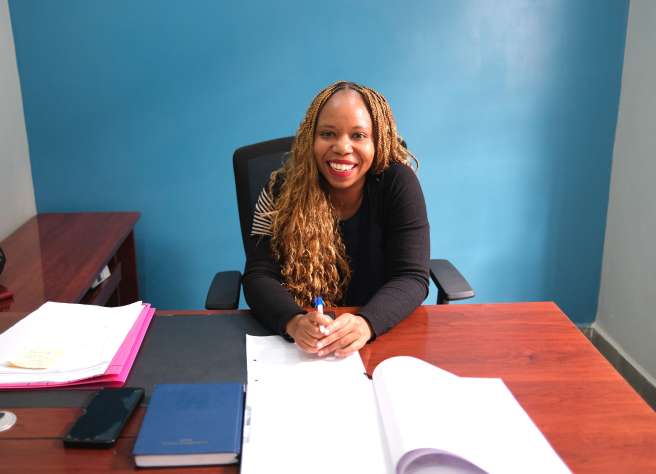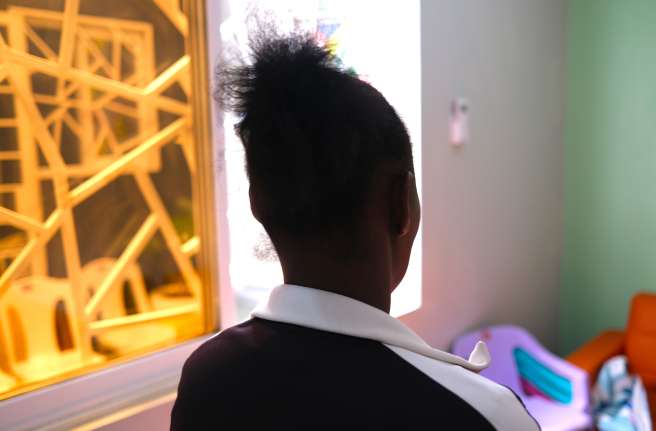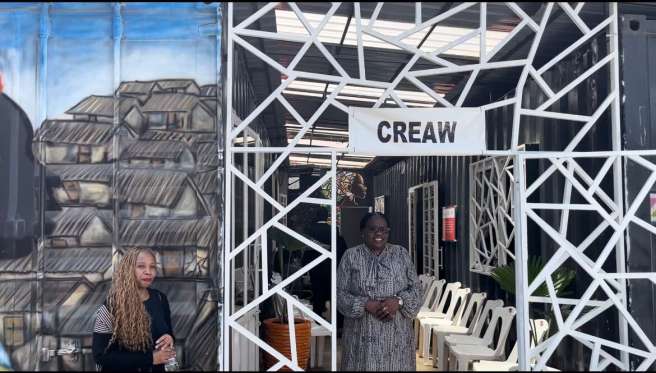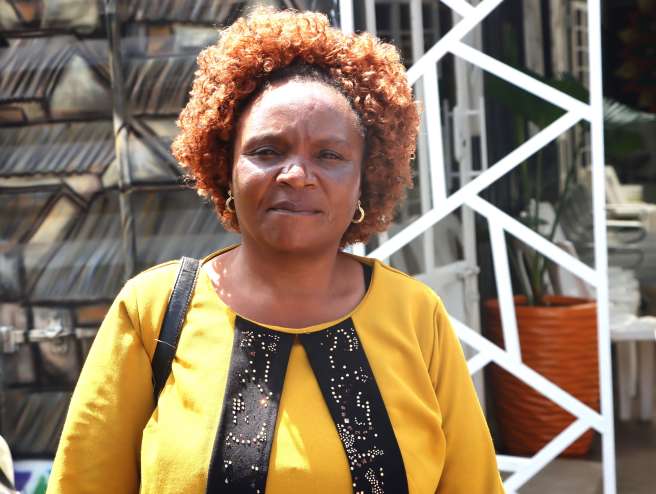The specialist care helping female survivors of violence in a Nairobi slum
It is thought that Kenya’s capital city Nairobi has around 40 neighbourhoods that are classified as slums, with low-income settlements housing nearly 60% of the city's five million people. A third of households in Kenya are headed by women, and most live in slum areas.
Mukuru Kwa Njenga slum in the Embakasi area of Nairobi county is home to 100,000 people as well as an outreach centre run by our local partner Center for Rights Education and Awareness (CREAW) to provide comprehensive support to survivors of domestic and sexual violence.
With support from Christian Aid, CREAW are able to operate a national, free of charge hotline where survivors can be provided with access to legal support as well as one to one counselling.
Image credits and information

Joy Elsie Wangari is a lawyer with CREAW. She said: “We have legal clinics where we talk to communities about their rights and the legal avenues they can pursue if they experience gender based violence. We also support survivors with their legal cases such as documentation support and making sure that their cases don’t lag within the system.”
As Joy explained, CREAW also offers support to survivors when perpetrators return to the community when out on bail and after serving time in prison.
“We engage probation officers so that they can talk to perpetrators to ensure there is no reoffending when they are released back into the community,” Joy said.
“We also do ‘watching briefs’. For example, if the perpetrator is out on bail and the survivor says they are being harassed, we liaise with the prosecutor’s office to make a protection order,” Joy added.
Gender based violence often goes unspoken of and unreported and it takes a toll on the financial, health, and well-being of women and girls. According to the Kenya Demographic and Health Survey in 2022, 4 in 10 women in Kenya have experienced physical or sexual violence during their lifetime from an intimate partner. However, research suggests that rates could be even higher among those living in slums.
Mum of two Jane (not her real) is one of many women who have walked through the doors of CREAW’s outreach centre in need of support.
Image credits and information

Jane explained that when she was five months pregnant with her youngest child, she and her husband began having arguments, which placed her under a lot of strain. As a result of the stress, she was admitted to hospital six months into her pregnancy. Jane’s daughter was later born underweight and had to remain with her in the hospital for an extra month, draining all the savings she had set aside for her new baby.
“When I came back home, I had altercations with the family. My husband wasn’t taking care of the responsibilities so it was just me. This is something that has really wrecked my life. My 14-year-old son who is supposed to be in secondary school has been at home up until now because we can’t afford the fees,” Jane said.
“I am an orphan so I had no parents who could come to help me. In my husband’s culture, they don’t listen to women. He wouldn’t even listen to his own aunts,” Jane explained.
Jane said that she heard an advertisement on the radio for CREAW’s outreach centre and went to them for help.
“I was provided with counselling because I was very emotional. But through the counselling, I was ok to be able to carry on,” Jane said.
Jane said that CREAW also drafted a letter to her husband to invite him to the centre to take part in couple counselling but that he refused to attend. Jane later divorced her husband and CREAW is also providing Jane with legal support to help her get child support from her now ex-husband who has so far refused to pay.
Since having her baby, Jane has only been able to work two days a week and is struggling to support her family, so receiving the child support she is entitled to will help her to pay her children’s everyday costs.
“CREAW has provided me with a pro bono lawyer who is acting on my case. I wouldn’t be able to manage the fees myself,” Jane said.
“I appreciate the support I have been able to get from CREAW. I pray for the case to go through so that my husband provides us with financial support,” Jane said.
Image credits and information

CREAW has operated the centre in Kwa Njenga since 1999. According to Angelina Cikanda, Head of Programmes with CREAW, there are high rates of violence against women in the area, and to address this requires a linked-up approach.
“The numbers coming from this area are huge. The GBV cases are so high in the area that as many NGOs and service providers as possible are needed,” Angelina said.
“This is one of the unique places where there is a psychologist and psychiatrist on site as well as health facilities. We work with other partners to provide people with private housing facilities to house people temporarily when it is not safe for them to go home but shelters like these are few and far between,” she added.
Another key element of the Christian Aid supported work that CREAW does in Mukuru Kwa Njenga slum is awareness raising about gender-based violence in the community. As Angelina explained:
“We raise awareness in the community about the services we provide. We also have community health promoters who are assigned households in the community and know the families. They can spot survivors and encourage them to come to the centre for support.”
Nancy Wahtiru Hjenga is one of these community health promoters and said the work she is doing with CREAW is making a real difference on the ground.
Image credits and information

“When I go into the community, I see a lot of GBV cases. Both men and women are affected emotionally and physically. They are beaten every day but they keep quiet and don’t report anything. But with our training, the communities are given awareness on where to report so that they don’t keep quiet,” Nancy said.
“I am happy that the communities are now expressing themselves. With the help of CREAW, they can come and talk about their issues and about what they are going through,” Nancy added.
We'll use your donation to help families around the world to overcome poverty and injustice, wherever the need is greatest.
